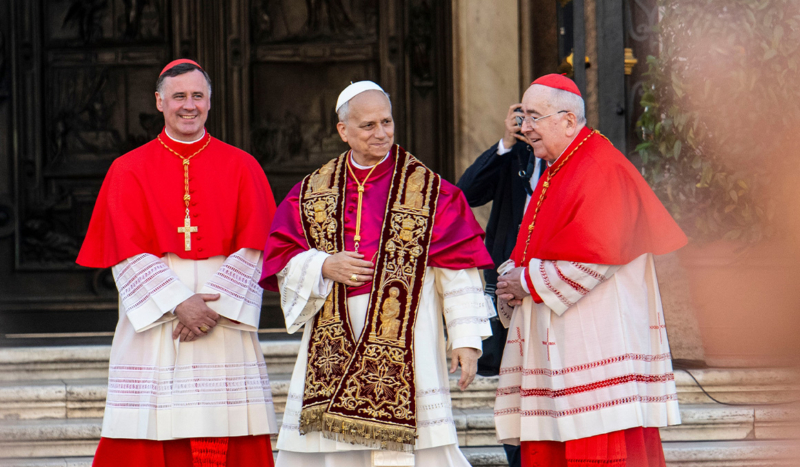
Rocco Pettini / Shutterstock.com
A senior reporter at the secular news outlet Vox wrote May 28 in praise of Pope Leo XIV’s intention to address the development of artificial intelligence (AI) directly, saying that it “is exactly the sort of thing the pope should have strong opinions on.”
“The Church’s past suggests that technology is something for it to actively engage with — cheering it on where appropriate, criticizing where necessary, but never just disengaging,” Sigal Samuel wrote in the article. “AI in particular is forcing big questions about the meaning of human life, and it’s important to have spiritual thinkers weigh in on those instead of just letting technologists run the show.”
Samuel, who was raised in Orthodox Judaism but no longer identifies as Orthodox, reports for Vox and formerly worked as the religion editor for The Atlantic. She writes extensively on topics related to AI, neuroscience, and ethics.
Despite instances such as the Galileo controversy, other historical instances show the Catholic Church and technological innovation going “hand in hand,” Samuel wrote, noting that Catholics spearheaded inventions like the printing press and impact-drilled wells. Samuel noted that in the 19th century, Pope Leo XIII wrote an encyclical, Rerum Novarum, responding to the Industrial Revolution, urging for the dignity and rights of workers to be protected lest people be regarded as commodities.
Both Pope Leo XIII and the late Pope Francis, who also spoke on AI, made the point in their pontificates that “[t]he Catholic Church can and should express opinions on the big technological developments of the day, because they relate to moral and spiritual questions,” Samuel wrote.
Pope Leo XIV chose his papal name in light of the technological revolutions of the present day — namely, AI, as CatholicVote previously reported. In his first meeting with the College of Cardinals after the conclave, Pope Leo reflected on the pontificate of Pope Leo XIII and told the cardinals that “[i]n our own day, the Church offers to everyone the treasury of her social teaching in response to another industrial revolution and to developments in the field of artificial intelligence that pose new challenges for the defense of human dignity, justice and labor.”
Samuel wrote that she doesn’t believe “religion has all the right answers,” but it has had millennia to identify some of humanity’s basic psychological needs and develop “mechanisms to meet them.”
Rerum Novarum emphasizes the importance of resting from work, for example, Samuel noted, as is required in the Ten Commandments by resting and giving the seventh day to worship of God.
The revolution of AI urges reflections on what kind of labor can be outsourced to AI and what labor should be reserved for human beings “because they’re ennobling or essential to human agency,” Samuel wrote, and raises other important questions, like whether artistic creation should be taken over by AI, and “[w]hat is a human life for, anyway?”
It is “entirely appropriate for religious leaders to weigh in on [these kinds of questions],” Samuel said. “Failing to do so would mean missing out on perhaps the biggest moral tipping point of the century.”

